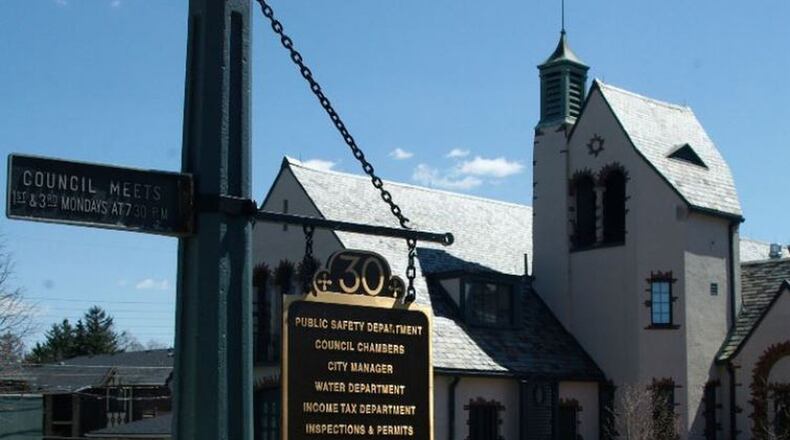“We were able to track down these homeowners, some of them still in the area and some of out-of-state,” said Maurice Thompson, director of the 1851 Center for Constitutional Law, which represented the homeowners in the federal suit. “The total amount of the fees to be returned didn’t amount to much — maybe $60,000 to $70,000 — but it has to be repaid and that should happen by the end of the year.”
MORE: Area packaging company plans $1M expansion, hiring more workers
The Oakwood Pre-Sale and Inspection Program required properties to pass an inspection by the city prior to being sold.
In May of 2016, the 1851 Center filed suit in federal court, arguing the requirement amounted to a warrantless search.
In February, Judge Thomas M. Rose of the Southern District of Ohio issued a 40-page ruling which rejected the presale inspections and granted the return of inspections fees to all affected homeowners.
Law Director Rob Jacques said the city was granted approval by the court in March to implement an updated ordinance.
“Although it was entirely constitutional when first adopted, an inadvertent change was made to the ordinance in 1992,” Jacques said. “As a result a provision was deleted that would have allowed the Code Enforcement Officer to seek an administrative search warrant in the event that an owner objected to an interior inspection of his or her home.”
MORE: With ‘heavy hearts,’ Dayton pedal pub owners calling it quits
He added the absence of the provision in the 1992 ordinance is what prompted the lawsuit, and the provision is included in the updated ordinance.
“Owners who plan to sell homes in Oakwood are required to obtain and pay for an inspection prior to sale, as they have since 1968,” Jacques said. “But there are now procedural safeguards in place that will allow the city to seek a search warrant in the event that an owner refuses consent for the interior inspection.”
Thompson, from the 1851 Center, said the new form of the program should not involve the city gaining entrance to a property for an inspection or charging a fee.
“Basically, it is what you or I can see from the street,” Thompson said.
Oakwood residents recently received postcards from the Dayton Realtors organization criticizing the presale inspection program, even though it has been modified.
Bob Jones, director of communications for Dayton Realtors, said the postcards distributed to Oakwood residents did not claim the city’s current practice is illegal, but that it is an unfair practice.
“As the trade association for all Realtors in Oakwood and the Miami Valley, Dayton Realtors opposes point-of-sale inspections by municipalities,” Jones said. “Our position is consistent with policies that are in place at the state and national levels.”
He added Dayton Realtors is opposed because such programs interfere with the right of property owners to sell and the right of buyers to seek an ownership interest in real property.
Jennifer Wilder, director of personnel and properties for Oakwood, said local real estate agents have expressed their support and appreciation for the presale program.
MORE: Local Elder-Beerman stores could close as early as Sunday
Wilder said the program keeps “our aging housing stock safe, in compliance with the Oakwood Zoning Code and Property Maintenance Code” and maintains “strong property values, year after year.”
Wilder said much of Oakwood’s housing stock dates back to the 1920s and 1930s, and virtually no substandard housing exists.
“Residents are actively encouraged to maintain and enhance their properties, and decade after decade they do so,” she said. “This benefits the community by ensuring that Oakwood housing remains both safe and desirable, and home values remain high.”
Zoning, building and property maintenance regulations are intended to promote public health, safety and welfare, Wilder said.
She said the program “helps to prevent homes from catching fire, collapsing, becoming unsightly or unsafe, or causing environmental damage, and by doing any of these things, reducing the value of other properties in the neighborhood.”
About the Author
